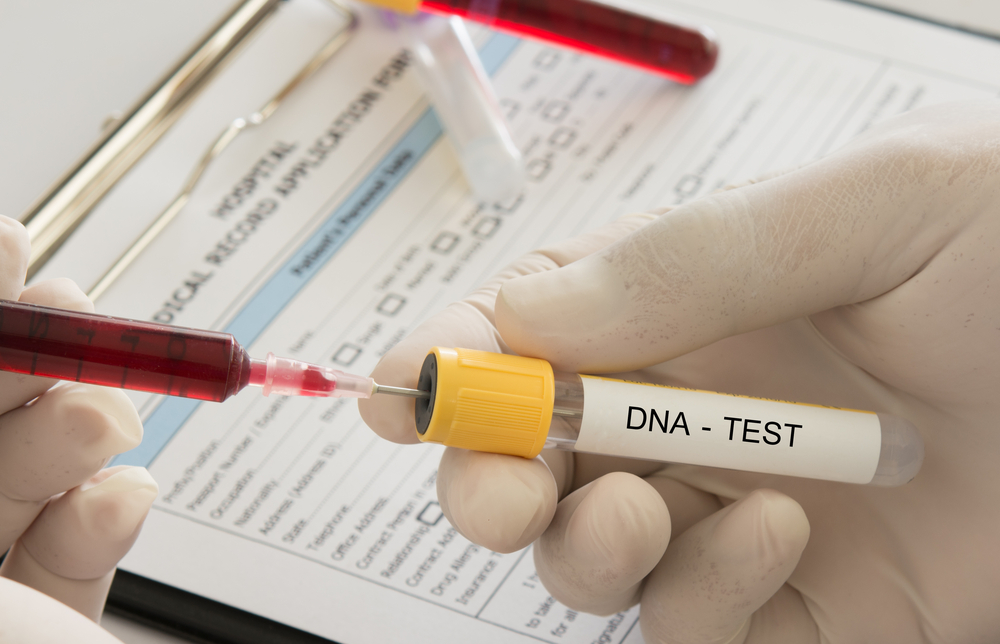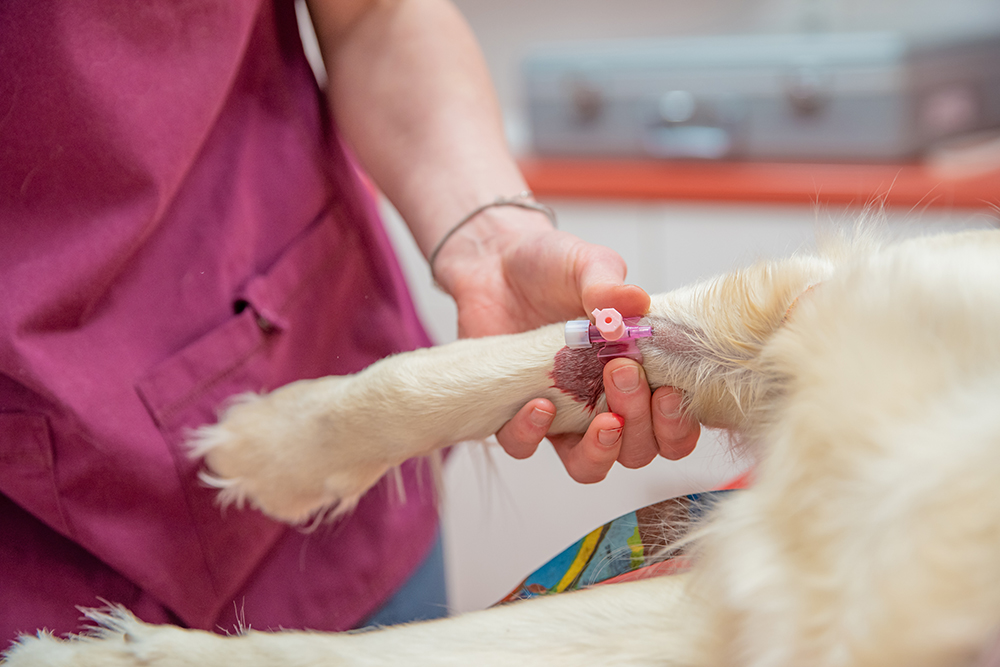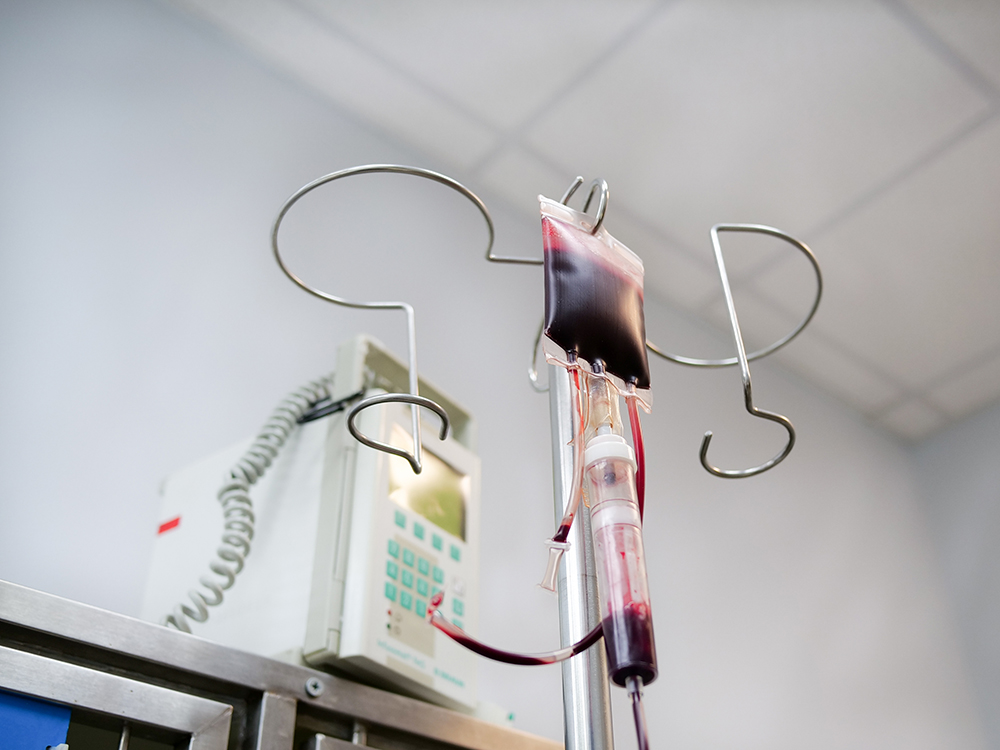You probably have been desirous about your specific individual blood kind today, you could want been questioning if canines have totally fully totally different blood varieties too. Blood is also categorized into totally fully totally different teams and these might also be often known as varieties. Like people, canines do have totally fully totally different blood varieties, nonetheless they aren’t the same as now we have acquired.
People are acknowledged to have 4 most crucial blood teams utilizing the ABO system—A, B, AB, and O, and every of those is also rh damaging or rh optimistic. Giving 8 teams in full for people. Canines have spherical 12 blood teams, with 6 of those being probably basically essentially the most clinically vital and some additional uncommon ones present in some particular breeds paying homage to Dalmatians and Shih Tzus.
Some canine tags embrace the canine’s blood kind, and your vet might protect this knowledge in case your canine has had a transfusion or been a blood donor.

What Are Blood Varieties?
Blood is a flowery physique fluid with many capabilities essential to life. It could be categorized into teams or varieties which is important knowledge when a blood transfusion is required. Antigens are constructions that would presumably be discovered on the bottom of the pink blood cells. Purple blood cells is also optimistic or damaging for a particular antigen.
The blood group of a person is assessed by the antigens discovered on the bottom of the pink blood cells.


Canine Blood Varieties
Blood varieties in canines are named as Canine Erythrocyte Antigen (DEA) 1.1, 1.2, 3, 4, 5, 6, 7, 8, Dal, Kai-1, and Kai-2. Canines is also optimistic or damaging for these antigens, e.g. DEA 4 + or DEA 4-.
Blood kind is set by genes, that are inherited from the dad and mom. As such, it is not uncommon for canines of the same breed to have the same blood kind, nonetheless not frequently. DEA 1.1 damaging kind is considered the “Widespread Donor” for canine blood transfusions.
Blood kind DEA 1.1 damaging is a comparatively uncommon blood kind in canines, nonetheless it’s thought of the widespread donor blood kind that’s protected to provide to most canines in want of a blood transfusion. Though it’s considerably uncommon, the next breeds usually are more likely to have this blood kind:
Conversely, the next breeds usually are often DEA 1.1 optimistic:

Canine Blood Donors
Canines want blood donors, just like people do. There are packages put together notably to take donations of blood from canines. Some veterinary clinics furthermore present these corporations and, in some conditions, donors pay money for free objects, reductions on treatment, and fully totally different incentives.
To be thought to be a blood donor your canine would most likely have to be match and healthful, not on any medicine, between 1 and eight years of age, present with their vaccinations, and over 50 kilos in weight with an easy-to-handle temperament.
Ask your vet within the occasion you are occupied with donating your canine’s blood they often should have the ability to advise of an area program or scheme that’s searching for donors.


When May a Canine Need a Blood Transfusion?
Blood donors are required when canines want blood transfusions. Principally, canines want transfusions after they’ve suffered huge blood loss, every after an accident, attributable to important sickness, immune system destruction of pink blood cells, and even following an operation. That is sometimes an emergency state of affairs with time of the essence.
Von Willebrand Illness is a blood clotting state of affairs that causes bleeding and may result in a canine shedding quite a lot of blood, requiring transfusion.
Is There a Widespread Canine Blood Type?
DEA 1.1 damaging is considered a typical blood kind for canines and O damaging for people. As Greyhounds are usually DEA 1.1 damaging they’re wanted as blood donors. If a canine is receiving a blood transfusion for the primary time basically essentially the most protected donor could also be DEA 1.1 damaging as there is not going to be any naturally occurring antibodies to this blood kind. Thus a direct and extreme transfusion response is just not most likely.
Transfusion Reactions
The interplay of antigens and antibodies between recipient and donor blood may set off destruction of pink blood cells contained in the recipient and as such it’s quite obligatory match up the blood varieties prior to a transfusion. That is notably vital if the canine has obtained a blood transfusion thus far.
If a recipient canine has antibodies of their blood plasma to antigens current on the donor canine’s pink blood cells they will be seen as worldwide and destroyed. It is a kind of transfusion response. These reactions can vary from delicate to life-threatening, so the best blood kind must be given all by way of any transfusion.
Cross-matching blood is a try carried out prior to a transfusion to check blood compatibility.


What’s The Rarest Blood Type in Canines?
Together with being the widespread blood donor kind for canines, DEA 1.1 damaging is, sadly, thought of amongst the rarest blood varieties. There have been blood varieties particular to Dalmations and Shih Tzu found so by way of numbers these could also be probably basically essentially the most uncommon. In distinction, DEA 1.1 optimistic is the commonest canine blood kind.
Can a Human Give Blood to a Canine?
Human blood and canine blood are incompatible and comprise very totally fully totally different antigens, which effectively means the canine’s physique would actively reject a human’s donor blood. As a consequence of this reality, human blood can’t be safely given to canines.

Conclusion
Very like people, canines have totally fully totally different blood varieties. In distinction to people, who’ve 4 blood varieties, canines have higher than 12 totally fully totally different blood varieties. Blood kind is vital when transfusions are carried out, and these is more likely to be required when a canine suffers obligatory blood loss, usually following an accident, after surgical course of, or on account of sure sicknesses.
Curiously, the first-ever blood transfusion carried out was not on a human nonetheless was carried out on a canine.
Featured Picture Credit score rating ranking: Kamil Macniak, Shutterstock

